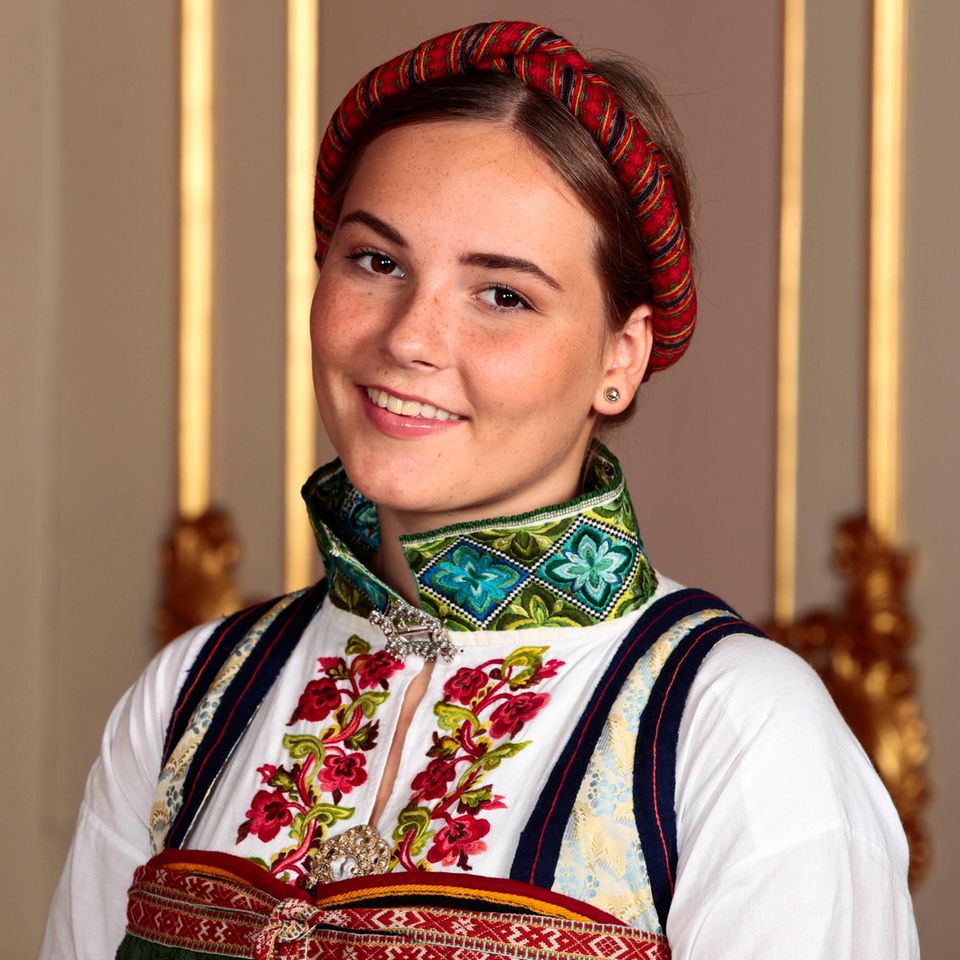When a public figure steps into the spotlight for a moment as significant as performing the National Anthem, every aspect of their presence, even their very name, can take on a deeper resonance. It is, perhaps, not just about the voice or the song itself; there's something more, a subtle connection to history and identity. For Ingrid Andress, her performance of the National Anthem invites us to consider the rich tapestry woven into the very syllables of her given name, offering a quiet depth to the occasion.
Names, you know, are far more than just labels we carry through life; they are, in a way, tiny vessels of heritage and meaning. They often hold stories from times long past, linking us to traditions and ideas that have shaped generations. It's almost as if a name carries a whisper of its own history, lending a unique flavor to the person who bears it, particularly when they are in a very visible role.
So, to truly appreciate the layers that might be present in a moment like the Ingrid Andress National Anthem, it helps to look a little closer at the name itself. The name Ingrid, it turns out, has roots that reach back into ancient traditions, carrying notions of beauty and connection to older tales, something quite special, really.
Table of Contents
- The Story Behind a Name - What is Ingrid's Background?
- The Ancient Roots of "Ingrid" - How Does "Ing" Connect to the Ingrid Andress National Anthem?
- A Name's Resonance - What Qualities Does "Ingrid" Suggest?
- Beyond the Sound - How Might "Ingrid" Influence a Public Figure like Ingrid Andress?
- The Echo of History - Does the Name Ingrid Carry a Special Weight for the Ingrid Andress National Anthem?
- From Ancient Roots to Modern Stage - What is the Cultural Impact of a Name Like Ingrid?
- The Significance of a Name in Public Life - Why Does "Ingrid" Matter for the Ingrid Andress National Anthem?
- Understanding the Layers - How Does the Meaning of Ingrid Deepen Our Appreciation of the Ingrid Andress National Anthem?
The Story Behind a Name - What is Ingrid's Background?
The name Ingrid is, basically, a feminine given name with a truly fascinating background. It comes from an older Norse name, "Ingiríðr," which was, in fact, a shorter form of "Ingfríðr." This older form was put together from two distinct parts: "Ing," which is a word for a deity, and "fríðr," which meant something like "beloved" or "beautiful." It's a girl's name with Scandinavian and Norse origins, often understood to mean "fair." The popularity of the name Ingrid places it, for female names, around the 973rd spot, which is interesting. The name Ingrid, you know, comes from Scandinavian roots and has a rather elaborate meaning, something quite rich in history.
Ingrid, in essence, is shaped from two old Norse components: "Ing" and "rid." The "Ing" part is the name of a god who was, it seems, held in high regard. It hails from Scandinavian and old Norse ancestry, and the sense of Ingrid is often given as "Ing's beauty." This name, Ingrid, has Scandinavian origins and is taken from the old Norse name "Ingríðr," which suggests "beautiful" or "fair." It's a pairing of the element "Ing," referring to a Norse god, and another part that brings in the idea of loveliness. Ingrid is, actually, mostly used in English, German, and Scandinavian regions, and its linguistic beginning is old Norse. The initial part, "Ing," points to a Germanic god of fruitfulness, who was, in other words, also recognized as Ingui.
From the old Norse name "Ingríðr," which suggests "Ing is beautiful," it gets its sense, being taken from the name of the Germanic god Ing joined with "fríðr," meaning "beautiful" or "beloved." A person from New Zealand, for example, shares that the name Ingrid is of Norwegian origin and means it comes from old Norse "Ingiridr," which was a shorter form of "Ingfridr," made up of the theonym Ing and the idea of being beloved. The name Ingrid is, primarily, a female name of Scandinavian origin that signifies "Ing's beauty." You can, of course, find out more about the name Ingrid by clicking through to other sources. The name Ingrid is a girl's name of Scandinavian, Norse origin, and it means "fair." The glowing appeal of Ingrid Bergman was, you know, strong enough to give it a widespread charm. What does Ingrid truly mean? Princess Ingrid Alexandra of Norway, as a matter of fact, had a solid reason for wearing just one opera glove during a formal dinner, where she looked quite radiant in a red dress and sparkling headpiece. The first element, "Ing," points to a Germanic god of abundance, who was, you see, also known as Ingui or Yngvi. The name Ingrid is of Scandinavian origin and comes from the old Norse name "Ingríðr," which means "beautiful" or "fair." It is a joining of the elements "Ing," referring to the Norse god of something significant. A well-known individual was a bearer of this name. Ingrid is an old Norse name, "Ingríðr," meaning "Ing is beautiful," composed of the elements "Ing," referring to the Germanic mythological god, and "fríðr," meaning "beautiful."
| Attribute | Description (Based on provided text) |
|---|---|
| Origin | Scandinavian, Old Norse, Norwegian |
| Meaning | Ing's beauty, beautiful, fair, beloved |
| Elements | Ing (theonym/god) + fríðr/rid (beloved, beautiful) |
| Popularity (Female) | Ranked 973rd |
| Usage | English, German, Scandinavian |
| Associated Deities | Ing, Ingui, Yngvi (Germanic god of fertility) |
| Famous Bearers | Ingrid Bergman, Princess Ingrid Alexandra of Norway |
The Ancient Roots of "Ingrid" - How Does "Ing" Connect to the Ingrid Andress National Anthem?
The core of the name Ingrid, that initial "Ing" part, reaches back into truly ancient times, linking us to a Germanic god of fruitfulness, a figure also known as Ingui or Yngvi. This god was, you know, held in high esteem, often associated with bounty and the very life force of the land. So, when we hear the name Ingrid, there's, in a way, this subtle echo of something very old and deeply rooted in natural cycles and well-being. It's not just a sound; it's a connection to a belief system that valued growth and prosperity. Could it be that this ancient link to a god of life and abundance, carried within the name, adds an almost unseen layer to a public performance? Perhaps, you know, the idea of a name with such a foundational connection to life itself could resonate with the solemnity and hope that a National Anthem represents, a song for a collective future.
The "fríðr" or "rid" part of the name, which means "beautiful" or "beloved," combines with "Ing" to create a complete picture: "Ing is beautiful." This combination suggests a kind of inherent loveliness, a beauty that is, perhaps, tied to the very essence of life and growth. It's a name that, basically, carries with it an idea of innate charm and appeal. When someone like Ingrid Andress stands before a crowd, presenting a piece of music so important, the very meaning of her name, "Ing's beauty," could, in some respects, add a quiet grace to the moment. It's almost as if the name itself is a small, personal anthem of beauty and deep-seated value, something quite fitting for a public display of national pride and artistic expression.
A Name's Resonance - What Qualities Does "Ingrid" Suggest?
Beyond its ancient components, the name Ingrid, overall, suggests qualities that are, really, quite appealing. It is often understood to mean "fair," which can imply not just a pleasing appearance but also a sense of honesty and balance. Then there's the meaning of "beloved," which speaks to a natural warmth and an ability to connect with others, to be cherished. And, of course, the idea of "beauty" is central, a beauty that, perhaps, goes beyond the surface, touching on something deeper, more fundamental. So, the name Ingrid, in essence, paints a picture of someone who is, you know, not only pleasing to the eye but also possesses an inner goodness and an ability to inspire affection. These are, arguably, qualities that lend themselves well to someone in the public eye, someone who needs to resonate with a broad audience.
The combination of these meanings—fairness, being cherished, and beauty—creates a name that feels both strong and gentle, ancient yet approachable. It's a name that, in a way, carries a quiet dignity. When we think of a person named Ingrid, there's a certain expectation of grace and a kind of timeless appeal. This inherent resonance of the name can, perhaps, subtly shape how a public figure is perceived, adding an extra layer to their persona. It's as if the name itself offers a preview of the qualities one might expect, a hint of the character that stands before you, especially during a performance that calls for both strength and sensitivity, like the National Anthem.
Beyond the Sound - How Might "Ingrid" Influence a Public Figure like Ingrid Andress?
It's interesting to consider how the deep meaning of a name might, you know, subtly influence a public figure. For someone like Ingrid Andress, whose name carries notions of ancient beauty and being cherished, these meanings could, in a way, resonate with her public persona. When she steps onto a stage, perhaps the very sound of her name, with its historical weight, sets a certain tone. It's not about conscious influence, necessarily, but more about the subtle associations that names carry in our collective awareness. The idea of "Ing's beauty" might, for instance, add an extra layer of artistic grace to her presence, something quite fitting for a musical performance.
A name that suggests "fairness" and being "beloved" could, basically, foster a sense of approachability and genuine connection with an audience. This is, you see, especially important when performing something as unifying as the National Anthem, which requires a performer to embody a collective spirit. The name Ingrid, with its roots in fertility and beauty, might also, in some respects, suggest a vibrant, life-affirming energy, which could contribute to a powerful and memorable presentation. It’s almost as if the name itself is a quiet, underlying melody, complementing the notes she sings, adding a rich, historical undertone to the Ingrid Andress National Anthem moment.
The Echo of History - Does the Name Ingrid Carry a Special Weight for the Ingrid Andress National Anthem?
The enduring nature of names, and how they carry echoes of history, really does add a special weight, particularly when a name like Ingrid is involved in a moment as public as the National Anthem. We've seen how names can gain a certain universal charm through famous bearers, like the luminous Ingrid Bergman, whose appeal was, in fact, strong enough to lend a widespread charisma to the name. This historical lineage, this connection to celebrated individuals and ancient meanings, means the name Ingrid isn't just a random collection of sounds; it's a vessel of cultural memory. So, when Ingrid Andress performs, there's, you know, a subtle thread connecting her to this long and distinguished history of the name, adding a depth that might not be immediately obvious.
This historical depth can, arguably, lend a certain gravitas to any public appearance. For the Ingrid Andress National Anthem, where the performance itself is a nod to a nation's history and shared identity, the name's own ancient roots and associations with beauty and belovedness could, in a way, deepen the experience for listeners. It’s as if the past, through her name, is subtly present in the moment, making the performance not just about the singer, but also about the enduring power of heritage and the quiet beauty of a name that has stood the test of time. It's a rather fascinating thought, isn't it, how a simple name can carry so much.
From Ancient Roots to Modern Stage - What is the Cultural Impact of a Name Like Ingrid?
The cultural impact of a name like Ingrid, which has moved from ancient roots to the modern stage, is, you know, quite significant. It's a name that has found a home in various languages, being used mostly in English, German, and Scandinavian regions. This widespread acceptance speaks to its universal appeal, its ability to transcend specific cultural boundaries while still retaining its distinct character. The fact that it's rooted in old Norse, yet feels completely at home in a contemporary setting, suggests a timeless quality. This adaptability means the name Ingrid carries with it a sense of both tradition and modern relevance, something quite unique.
The name's journey from a god of fruitfulness to a popular choice for girls, and then to being borne by public figures, illustrates its enduring charm. It's a name that, in a way, embodies a quiet strength and an inherent loveliness that resonates across different eras and places. This cultural journey, this ability to remain relevant and appealing, contributes to the overall presence of someone like Ingrid Andress. It's almost as if the name itself has a kind of silent, supportive role, bringing with it a rich heritage that adds to the impact of her performance, particularly for something as culturally significant as the National Anthem.
The Significance of a Name in Public Life - Why Does "Ingrid" Matter for the Ingrid Andress National Anthem?
The significance of a name in public life, particularly one with such a rich background as "Ingrid," really does matter for something like the Ingrid Andress National Anthem. A name isn't just a label; it's a part of one's identity, and for a public figure, it becomes a part of their public identity. The meanings embedded in "Ingrid"—"Ing's beauty," "fair," "beloved"—can, in a way, subtly inform how an audience perceives the performer. It's about the subconscious associations, the feeling that the name itself evokes. When someone with a name steeped in notions of grace and ancient reverence steps up to sing a song of national unity, there's a quiet alignment, a sense of fittingness, that can enhance the overall experience for the listeners.
This isn't to say that the name dictates the performance, but rather that it adds a layer of depth and resonance. The heritage carried within "Ingrid" can, basically, lend a certain weight to the moment, a feeling that the performance is connected to something larger than just the individual. It's a connection to history, to tradition, and to a timeless sense of beauty. So, for the Ingrid Andress National Anthem, her name becomes a quiet, yet powerful, component, contributing to the overall impression of a performance that is both personally delivered and deeply rooted in a shared cultural past, something quite meaningful, you know.
Understanding the Layers - How Does the Meaning of Ingrid Deepen Our Appreciation of the Ingrid Andress National Anthem?
Understanding the various layers of meaning behind the name Ingrid can, in fact, truly deepen our appreciation of the Ingrid Andress National Anthem. Knowing that her name connects to an ancient god of fruitfulness, to ideas of inherent beauty and being cherished, adds a richer perspective to her public moments. It allows us to see beyond the immediate performance and consider the subtle currents of history and meaning that flow through a person's identity. It's almost as if her name itself is a quiet overture, preparing us for a performance that is not just about vocal talent, but also about the enduring spirit and beauty that her name signifies. This deeper awareness can, arguably, make the entire experience more profound.
When we listen to the anthem, knowing the story of her name, we might, in a way, perceive a heightened sense of grace or a stronger connection to the foundational values that the song represents. It transforms a simple act of singing into a moment imbued with historical echoes and timeless qualities. The name Ingrid, therefore, serves as a gentle reminder that even the smallest details, like a person's given name, can carry immense weight and contribute to the overall impact of a significant public presentation. It's a rather lovely thought, really, how a name can add such an interesting dimension to an already powerful event.


